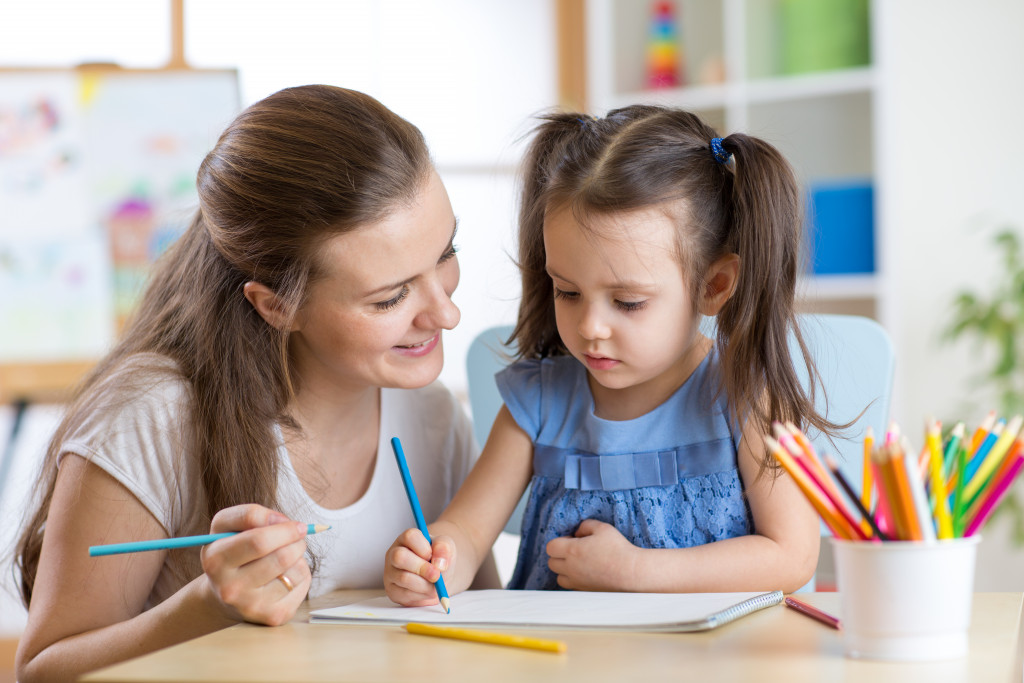Most people assume that introverted kids are just shy types. This is often the case when parents notice that their kids do not socialize with other kids like others. Introverted children prefer to do activities on their own and just spend time alone instead of looking for a companion. Experts claim that introverts generally engage with deeper life aspects and have their own vivid and rich inner world.
But while being an introvert isn’t something a parent should bother changing, kids with this quality require a bit more support and encouragement, especially when it comes to their studies. Parents should be able to ensure a quality learning experience for their kids in this highly extroverted world. Read on to find out how to support your introverted kid’s education the right way.
Learn about introversion
Obviously, before you could do anything to support your child, you must first understand the real meaning of being an introvert. Experts advise parents to look at the traits of an introvert to actually realize that what their kids have is totally normal. One perfect example is that an introverted kid prefers to spend time alone and not share their feelings.
Many parents often find this too worrying yet ignore the importance of having a discussion about emotional distress. While such traits can be linked to depression, parents are suggested to make changes in behavior patterns. You need to understand that introversion is a personality trait and not a response to external influences.
Enroll them in online education
Studies found that introverts can potentially perform better than others when it comes to online classes or classrooms. This kind of setup can generally benefit kids with such personality traits, especially if you see that they are overwhelmed with in-person classes. Virtual schools are not only convenient but it’s also an excellent way to create a personalized education plan for your child and work closely with their teachers.
What’s more, finding such classes won’t be hard as there are tons of educational institutions out there that offer online elementary education programs that you can enroll your kids in. And the best part? You and your kid will have more extra time to bond or spend time with each other as most online classes can be relatively flexible.
Create a good learning environment

Next, it’s important to craft a comfortable and encouraging learning space for your kid at home. Ask them about what they want their study area to look like and make it happen. Kids, introverted or not, can be more motivated and productive in studying if they are in a place they like and comfortable with. Put in some good lighting, fill it with essential learning supplies, and eliminate distractions. It’s also best to encourage your kid to personalize their study area with their artworks or decorations to make them more inspired.
Talk to their teachers
Regardless of your kid is enrolled at an in-person school or online classes, it’s always a recommendation to parents to talk to their kid’s teachers. Kids, especially introverts, may feel uncomfortable participating in class activities or events. Let their teachers know about their personality traits to reduce or avoid any unnecessary pressure from the classes.
Doing so will allow the teachers to create a unique learning experience where your kid can thrive. At the same time, this can make it easier for your kid to adjust. Plus, this will enable both you and the teachers to explore new learning options that will help introverted kids engage more in their classes. Such collaboration opens up the opportunity for a comfortable and engaging learning experience for your kid.
Respect their preferences
Recognizing the preferences of your kids makes everything a whole different. It’s a strong foundation for providing genuine support for your introverted child. Instead of worrying about why your introverted kid only has few friends when others have tons, understand that this may be a choice that makes them happy.
Arranging playdates to meet new and more people even they’re extremely uncomfortable about it won’t help them in any way. Forcing him or her into more connections isn’t always the best solution. Let your child spend time with people that he or she wants to be friends with. After all, that is still socializing.
Supporting your child with their education and growth can help them adjust easily to external situations and influences. They are naturally passionate, creative, and deep thinkers, so make sure you focus on improving more of their qualities. Providing forceful and incorrect behavior that doesn’t work with their energy patterns can just result in serious social difficulties. Help them continue building their strengths and embrace their gifts like others.



